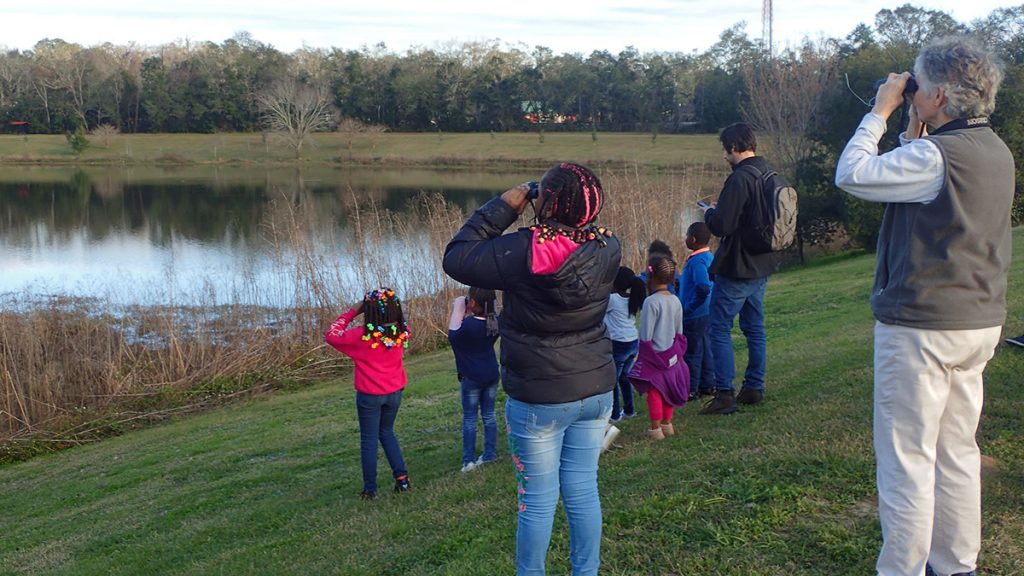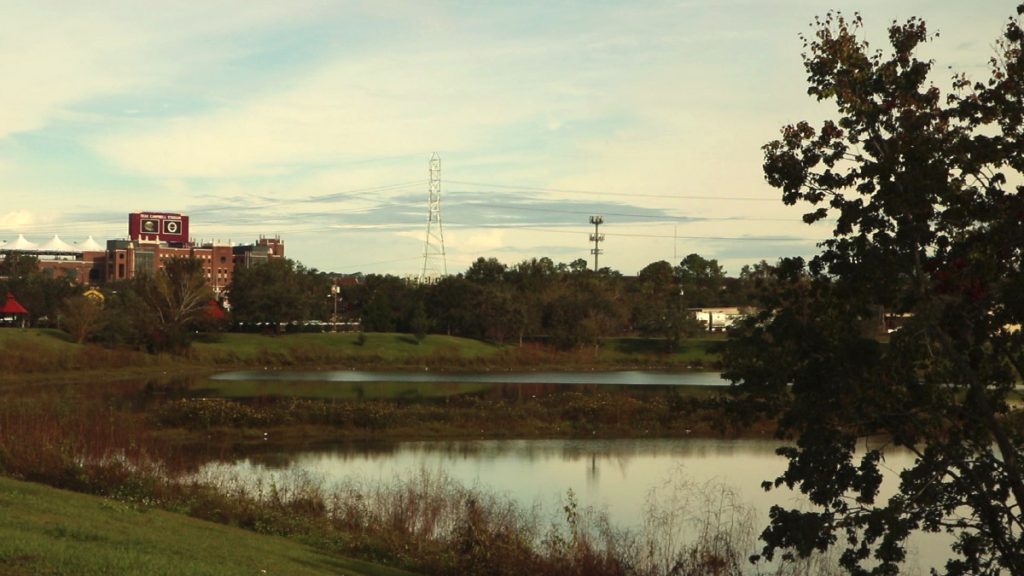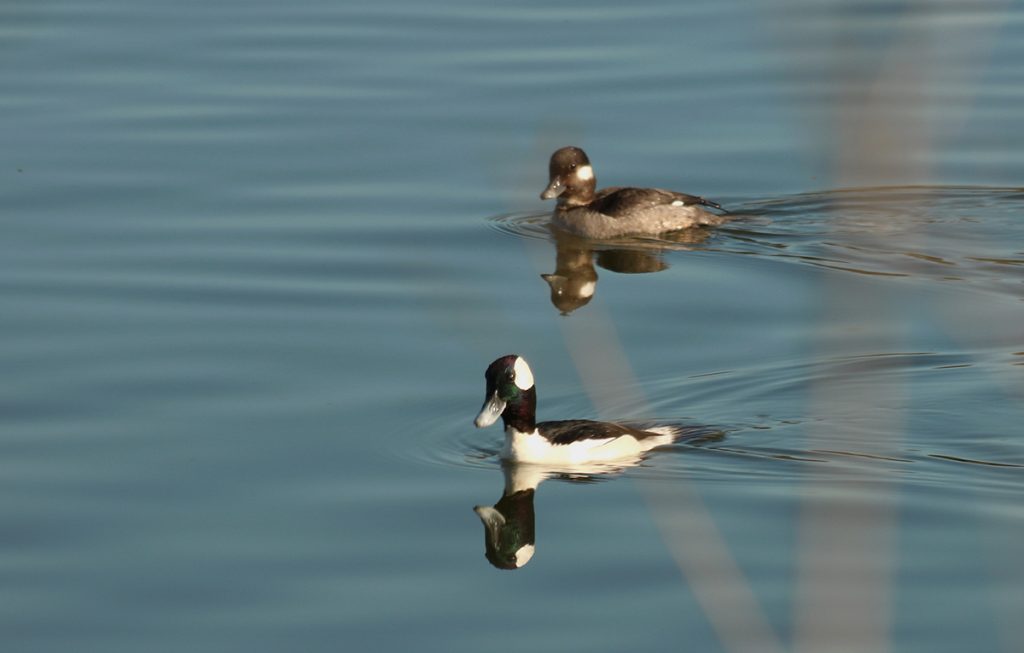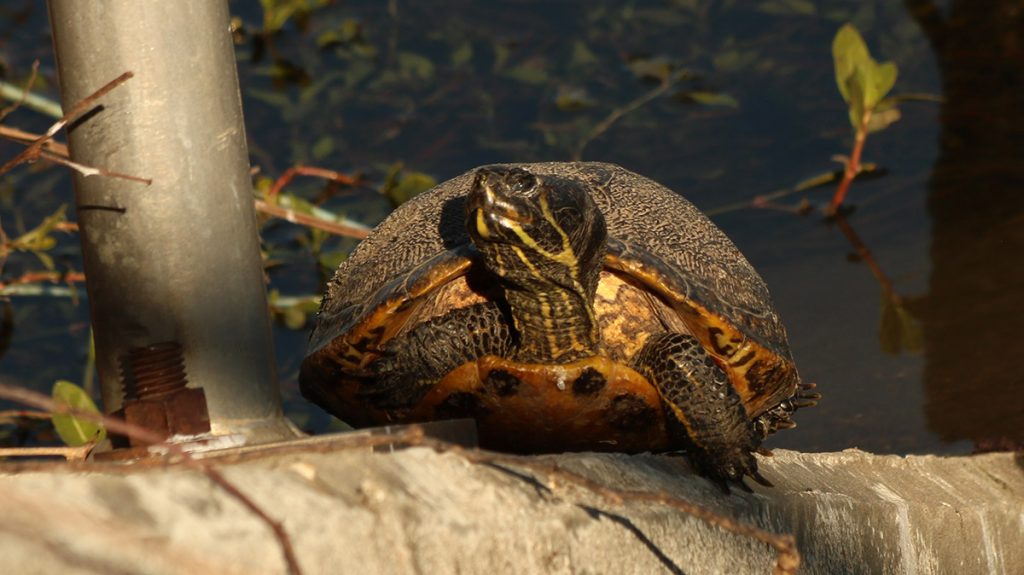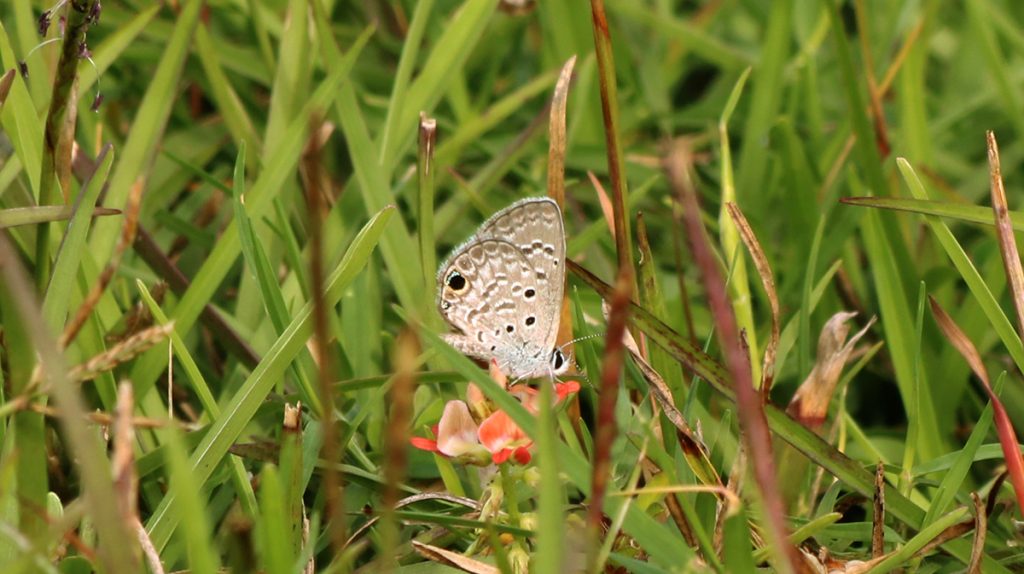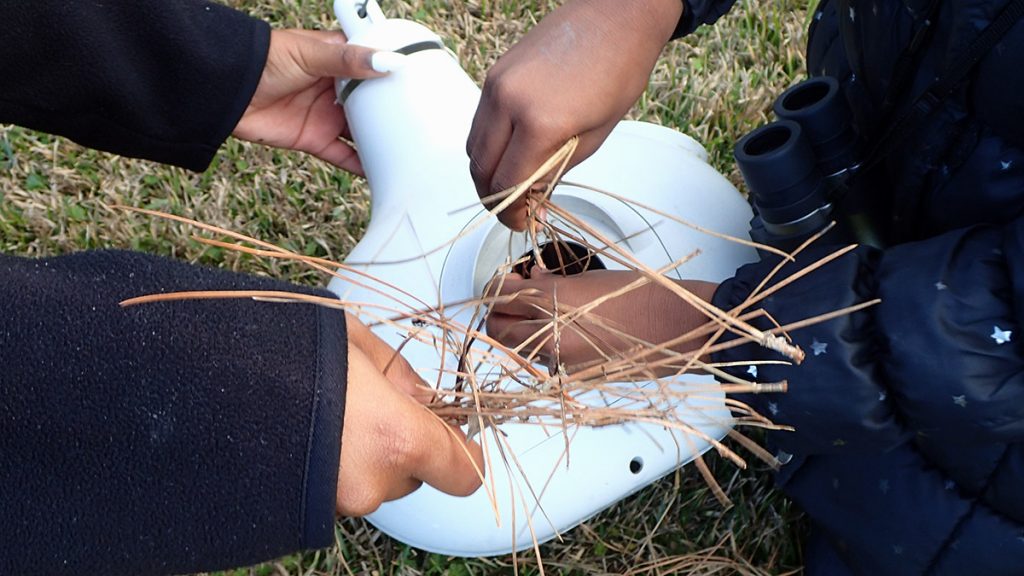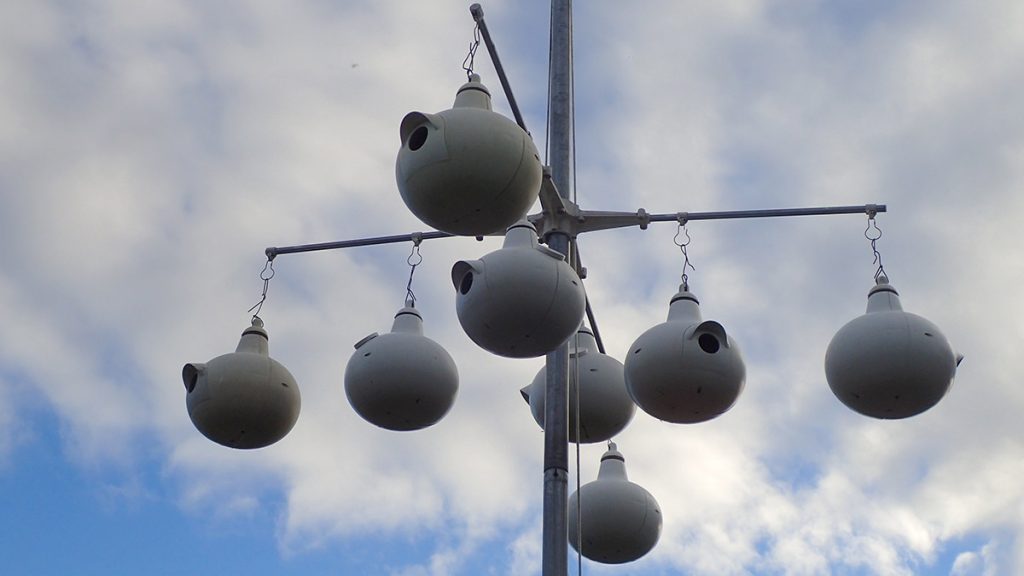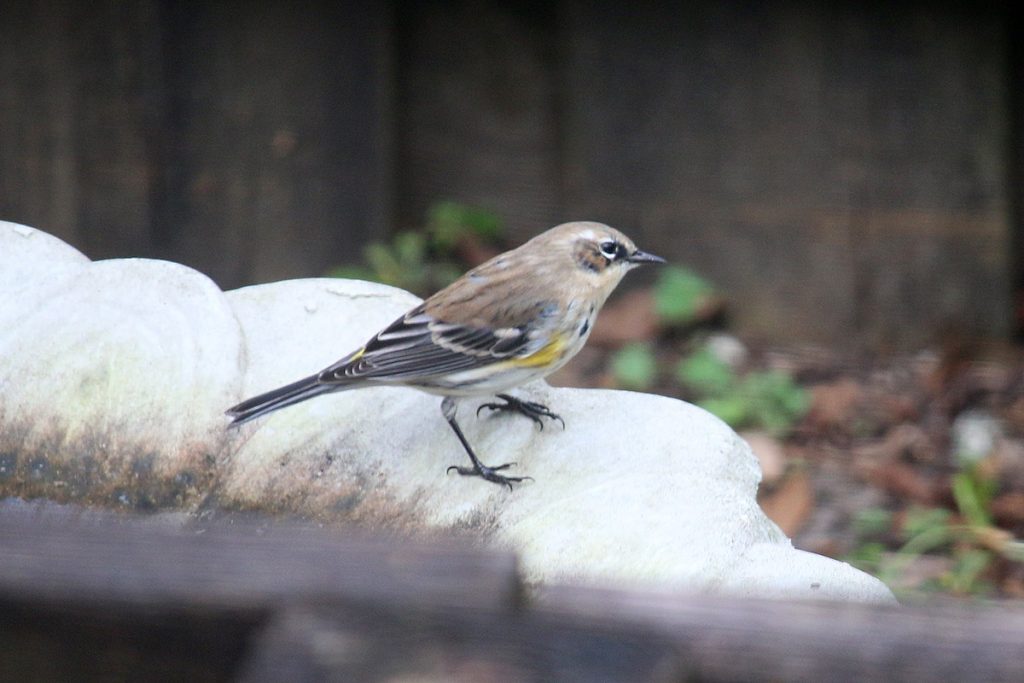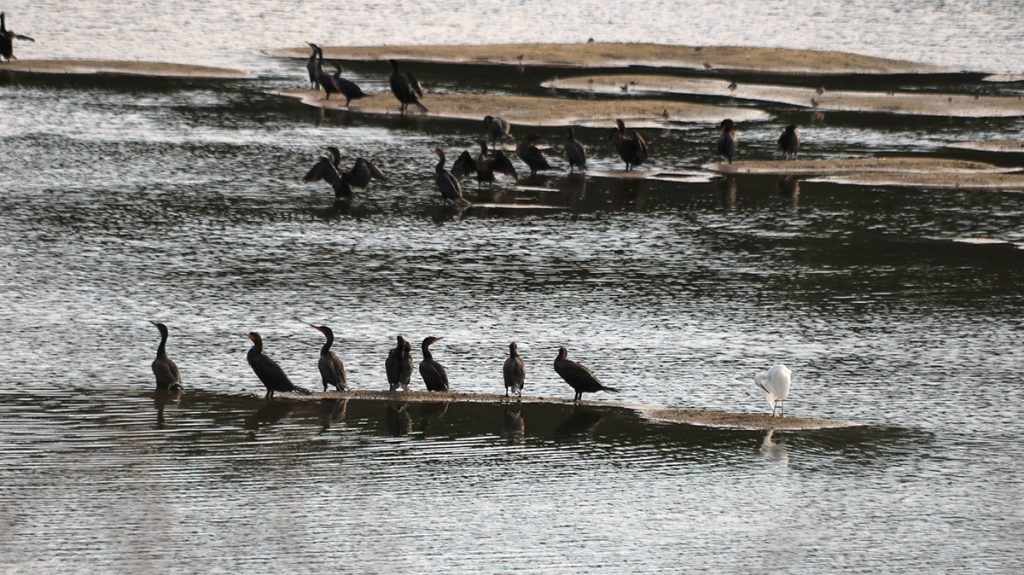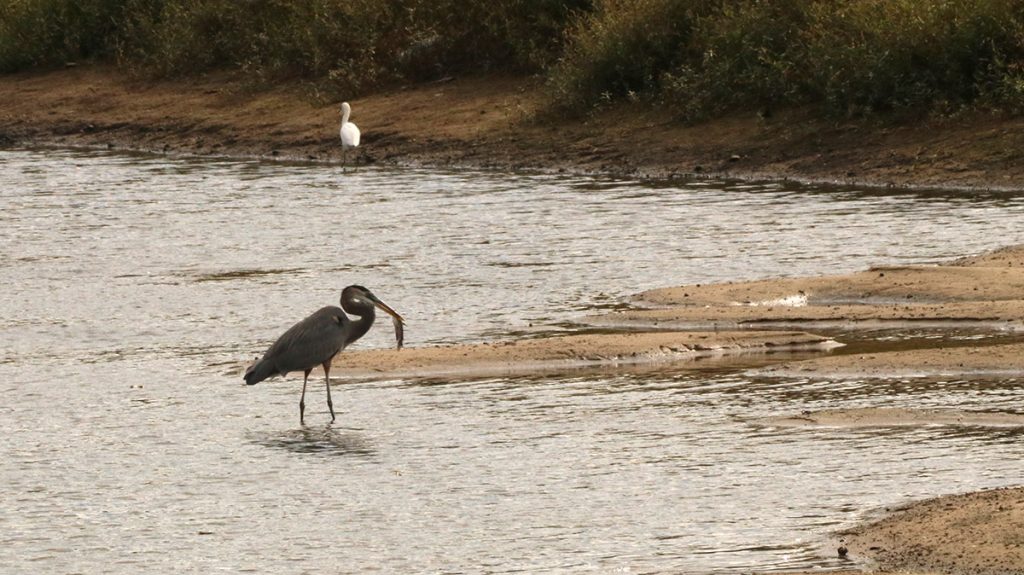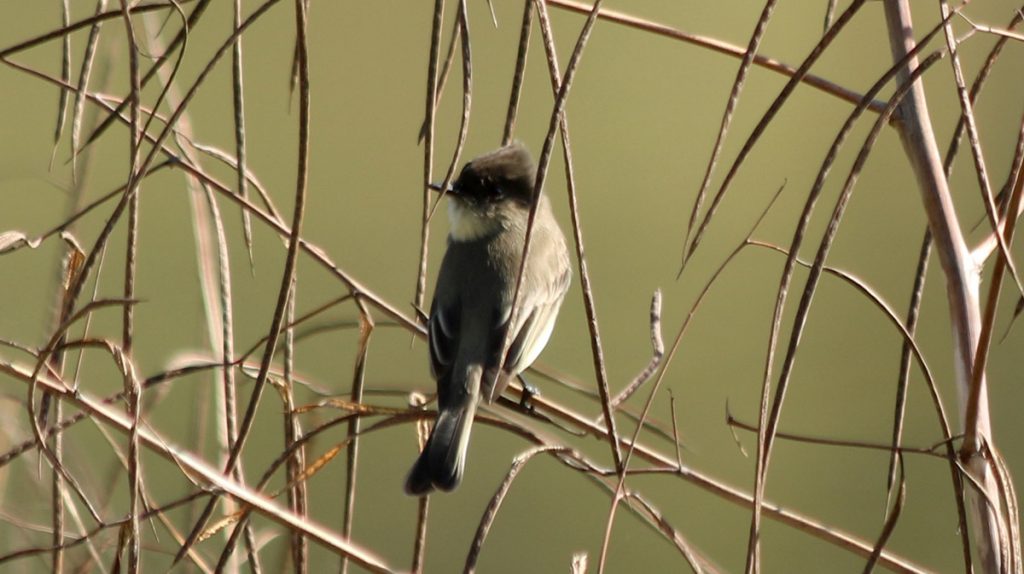We are one week away from unveiling the WFSU EcoCitizen Project. Before we do, let’s meet one of our major partners, and visit one of the project’s major locations: Lake Elberta. Located in the heart of Tallahassee, it’s an unexpected wildlife hotspot. Subscribe to the WFSU Ecology Blog to receive more videos and articles about our local, natural areas, and subscribe to the WFSU Ecology Youtube Channel.
Peter Kleinhenz Interpretive Writer & Planner, Florida Fish and Wildlife I’ve got a sanctuary and it’s called Lake Elberta Park. You can find me there during lunch breaks, after work or, occasionally, after dark. I stroll, I sit and I let the intricacies of the life I observe transport me from my reality of stress and bills and too many obligations. Are you picturing my sanctuary as a peaceful park bench amidst towering oaks, or perhaps as a field with long grass blowing in the breeze? If you are, think again. Lake Elberta Park defies all expectations. The urban retention pond surrounded by mowed grass and a few planted trees exists in the shadow of Doak Campbell Stadium. It appears, to the naked eye, like the furthest thing from a place of peace. An abandoned chicken joint is a next-door neighbor. You would never expect to see noteworthy animals there. Sometimes homeless men can be seen sleeping on park benches. Most of you reading this have probably driven by it countless times and never thought twice about stopping. I sincerely hope that changes, though, because the park is much more special than it appears.
Lake Elberta | A Tallahassee Birder’s Paradise
For starters, let’s talk about the birds. Believe it or not, Lake Elberta Park currently ranks #4 in terms of bird species observed at a given place in Leon County. In fact, I know several birders who made the park their first stop when visiting Tallahassee due to its ease of access and diversity. Rarities like red-necked grebe and magnificent frigatebird have been seen there but, even on “slow” days, a casual birder should be able to see 20-25 species of birds simply by walking the paved path around the lake.
Where the diversity of one group of animals is high, you can expect the same to be true for others. On warm days, dozens of turtles of at least three species bask on the peninsula that juts out into the lake. An alligator seems to have claimed the end of the same peninsula as its throne. Otters occasionally visit the lake from nearby Munson Slough. I’ve observed a family of raccoons many times that has called a large, hollow tree in the line of forest at the eastern edge of the property home.
Each of these animals requires food, shelter, water and space to raise young. Lake Elberta Park provides each. Each animal must navigate their world amidst the onslaught of threats that face them. Lake Elberta Park offers a respite from the cars and windows and cats that make the city, even one as wildlife-friendly as Tallahassee, a tough place to live. For a human with their basic needs met but a lot on their mind, the busy lives of these animals as they sing for mates, escape predators and capture prey becomes a mirror from which a new image of what’s actually important reflects back.
A Community Asset
I know that I’m not the only one. Recently, I had the opportunity to speak with people in the Providence Neighborhood, which sits across Lake Bradford Road from Lake Elberta, about their thoughts regarding the park. One old man with white, curly hair looked up suspiciously from the car he was working on when I walked up his driveway with a friend. We wanted to know what he thought about the park for some data we were collecting for a larger project. He lit up when we mentioned the park. “Yeah, of course I know Lake Elberta,” he told me matter-of-factly. “I walk there and I watch the birds. Mmhmm. It’s a very peaceful place.” Why was I walking around a neighborhood asking people about this park? How is Lake Elberta Park relevant to you, the reader, besides being a nice place to visit? In short, Lake Elberta Park symbolizes the potential that Tallahassee, Leon County and each one of you has to enhance the world around you.
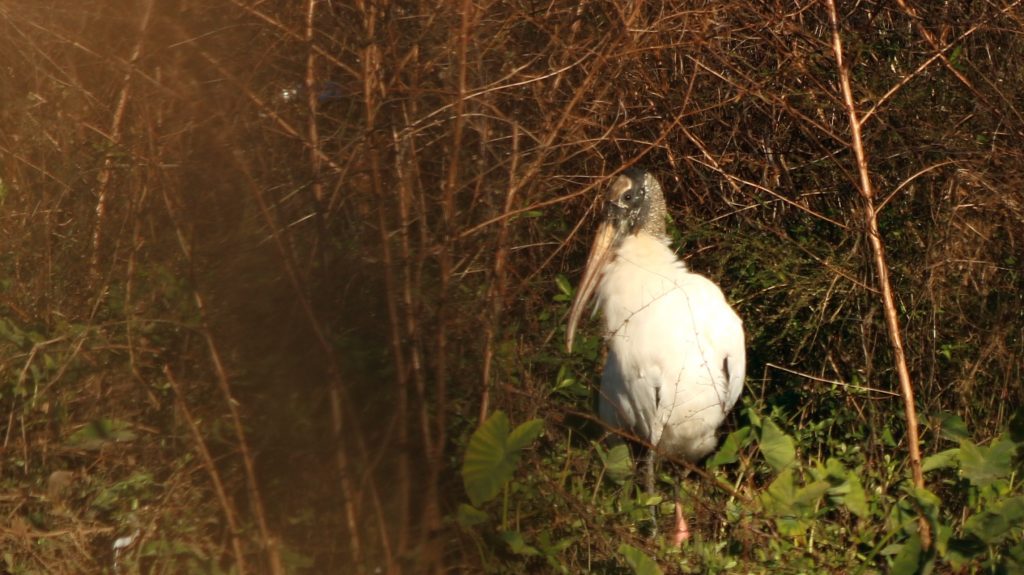
A wood stork crouches on the peninsula. These endangered migratory birds have been a presence at Lake Elberta for months.
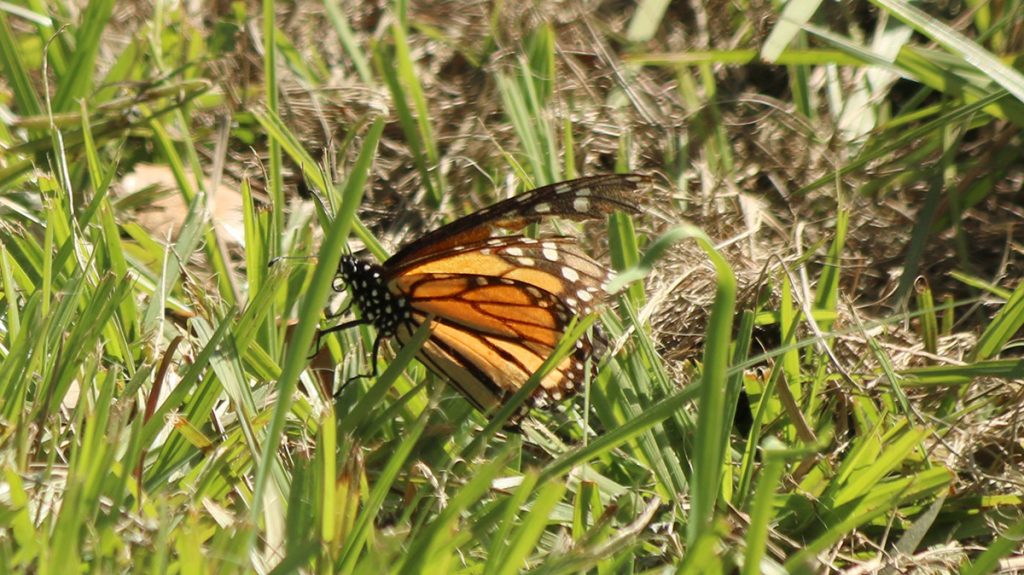
The WFSU Ecology team spotted this monarch butterfly here at the end of November. This was towards the tail end of the monarch southward migration. With a torn wing, would it make it to Mexico?
Planting Native | Improving the Lake Elberta Habitat
The Apalachee Audubon Society, a chapter of the National Audubon Society which covers five counties in the Panhandle including Leon, received a grant to enhance Lake Elberta Park. Their thinking was that the park already had high bird diversity, was situated in the midst of some of the most underserved neighborhoods in Tallahassee and was an accessible park to residents, college students and visitors alike. They had the vision, and the Audubon-in-Action grant they received allowed them to transform that vision into, well, action. Two students from Florida A&M University and two from Florida State University were hired as interns to help launch this project. All of them engaged with the community in a variety of ways, including the at-home visits mentioned above, to identify wishes for the park. They then planned community events such as trash clean-ups with City of Tallahassee teen centers, a Youth Christmas Bird Count and a kickoff event where two pounds of native wildflower seeds were planted around the lake. Couple these events with the installation of a purple martin house, blue bird box and interpretive sign and you get a sizable positive impact there for people and wildlife alike. And I haven’t even mentioned invasive species yet. At the previously-mentioned kickoff event, a team of dedicated volunteers tackled an issue facing every park in Leon County: invasive plants. Camphor, Chinese privet and mimosa rapidly overwhelmed the forest that defined the backside of Lake Elberta Park. Armed only with handsaws and loppers, about 15 volunteers cut down almost every invasive plant that they could find. A few of us applied herbicide on the cut trunks and stems to prevent any of these invaders from coming back. Their ability to choke out native species, limit wildlife diversity and ruin the beauty of our natural areas can’t be understated.
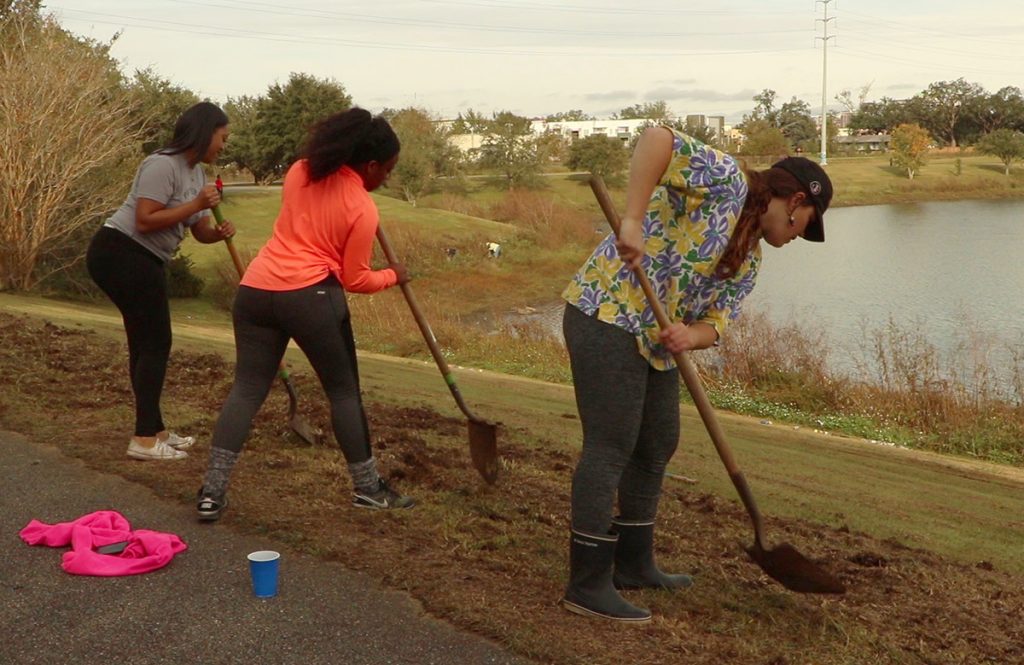
Volunteers prepare the soil along the trail for wildflower planting last November. Wildflowers are best planted before it gets cold, sprouting months later in the spring.
Invasives, whether at Lake Elberta Park or at home, can seem undefeatable. The City of Tallahassee, for example, simply does not have the resources to tackle the problem in every single park. When a team of motivated volunteers bands together to remove them, however, the City of Tallahassee takes advantage of the opportunity. The Parks, Recreation and Neighborhood Affairs Department was so impressed at the progress made at the Lake Elberta Park event that they went in and removed all of the remaining invasive plants and trees that they could find! Out of many small changes came one big one.
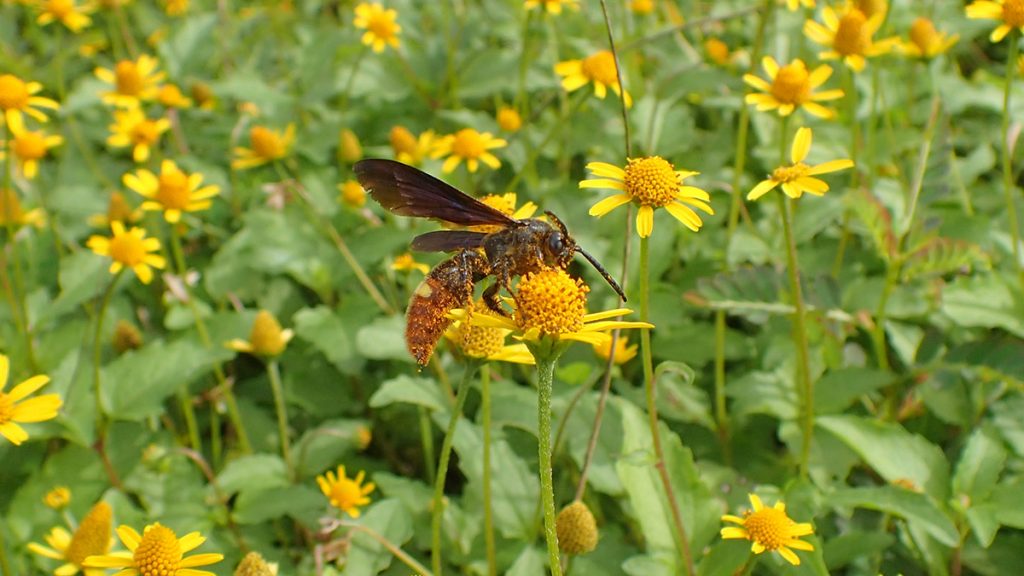
A wasp pollinates oppositeleaf spotflowers growing in the grass by Lake Elberta last October. With their recent wildflower planting, Apalachee Audubon hopes to increase pollinator activity around the park.
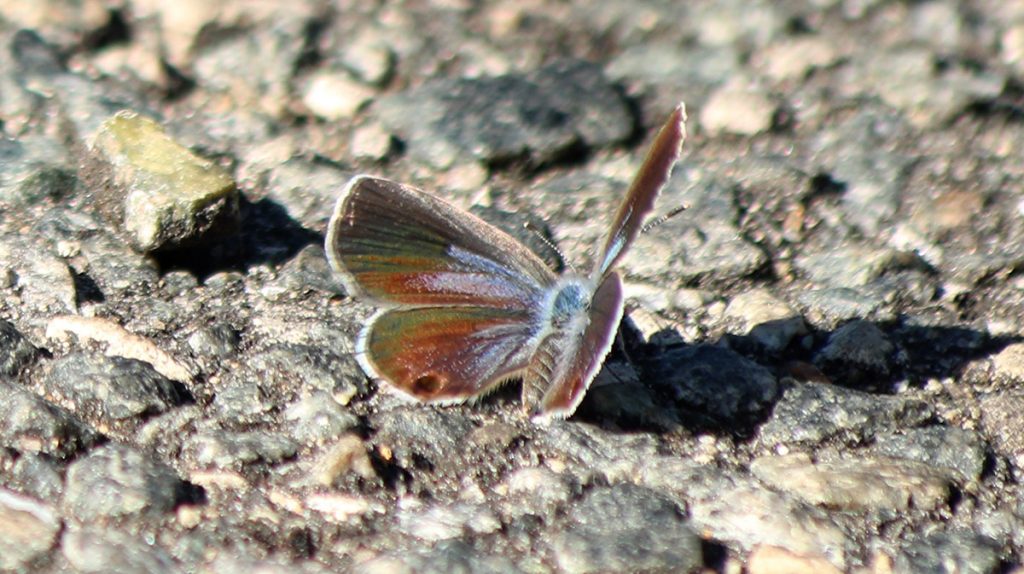
In the parking lot one day, the WFSU crew saw the colorful top of the ceraunus blue. This butterfly grows to a maximum of about one inch.
The Walker Ford Kids Build a Purple Martin House
Just last week, a few members of Apalachee Audubon and the Lake Elberta interns joined forces with children from the Walker Ford Community Center. The City of Tallahassee runs the center and offers all sorts of programs for the kids that walk through its doors. The bus pulled up to Lake Elberta Park and, within thirty minutes, we had installed a structure for purple martins to use. These soaring swallows feed upon a range of insects, including pesky fire ants. The birds win and so do the kids who get to use binoculars to see birds, like wood storks and bufflehead, that they never knew existed. I knew that the wheels were turning in the kids’ minds when three of them pointed to some trash near the shore and asked, “Can we pick that up?” All of these improvements benefit Lake Elberta Park directly, of course. But my hope is that they do more than that. I’m hopeful that the enhancements made there illustrate a point that I love to make: you can make a difference.
Making a Difference- In Your Garden
It doesn’t take an Audubon grant or a team of student interns to implement the changes mentioned above. In fact, it doesn’t even have to cost money to make a difference. You can leave brush piles in your yard instead of sending them to the landfill. You can hand-pull invasive plants. You can pick up trash in a local park. You can have intentional conversations with your neighbors about ways you can work together to make your community a more welcoming place for people and wildlife. All of this work costs nothing but your time.
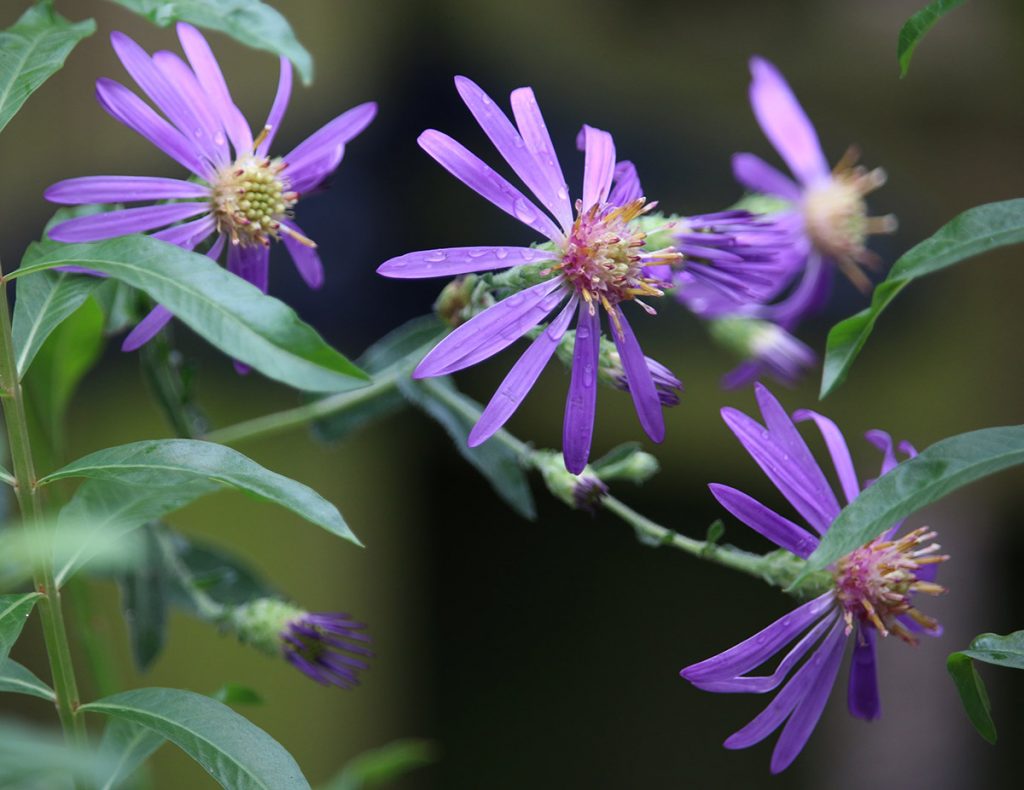
Georgia aster (Symphyotrichum georgianum), one of a large variety of native plants that can help build a home habitat.
For less than the cost of two beers, you can purchase a native plant for your yard. Your family could rally around the project of constructing and installing a bluebird nest box. The purchase and installation of a bird bath could dramatically increase the number of species that visit your yard. These are just a few ideas.
Check out more WFSU content on backyard ecology and gardening for pollinators. Building a backyard habitat will be a major theme of the EcoCitizen Project. The Florida Fish and Wildlife Conservation Commission started a campaign called Backyards and Beyond to highlight the various ways landowners can take part in conserving wildlife around their home. This includes tips on how to plant a refuge for wildlife, how to participate in the first-ever City Nature Challenge (for which FWC is partnering with WFSU and the Coastal Plains Institute for an April 27 bio-blitz) for our area and how to document interesting life found in your yard. Additional organizations, such as the Apalachee Audubon Society and the Magnolia Chapter of the Florida Native Plant Society, host monthly programs that often feature ways to engage with local conservation issues and even offer tours of local yards that provide excellent wildlife habitat. The Challenger Learning Center currently shows a 3D film titled Backyard Wilderness that highlights the life living around all of us when we are at home. In other words, a synergy exists in Tallahassee right now around this idea and the time is ripe to get started. I took a walk around Lake Elberta as I was writing this article. It dawned on me that the park, my sanctuary, isn’t just a place where I find peace. It’s a place that recharges my soul, providing tangible evidence of the potential each of us has to make an impact on Tallahassee and the world at large. So, like the bald eagle that I observed soaring in circles above the lake, spread your wings and rise up to see the big picture. Many small positive changes can make one big one and you, today, could make one small change. The WFSU Ecology crew has been visiting Lake Elberta over the last few months as we shoot footage for the WFSU EcoCitizen Project. Join us on April 27 for EcoCitizen Day, a part of the Leon County City Nature Challenge. Details are coming soon!

